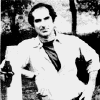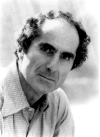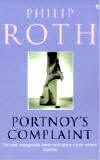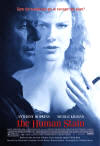
It Happened
in History!
(Go to
It Happened in History Archives)
|
"In warm weather, people sat on the stoops and on beach chairs in the driveways. [At night] you'd be sweating, trying to sleep, and you'd hear them, you'd hear their conversation all the time, and it would be very comforting." Early in his life, he rebelled against his background and
Jewish society. "Newark [was] the battleground...between the European
family of immigrants...who clung to the rigorous orthodoxy and the
[American] children who wanted to be rid of all that because they sensed
immediately that it was useless in this society."
But not everyone was thrilled. His editors told him that the magazine was receiving hundreds of letters from angry Jewish readers. The Anti-Defamation League protested the story. Roth tried to roll with the punches. He published his first book, a collection of short stories called Goodbye Columbus, in 1959. It received good reviews and won several awards. But several years later, while speaking at a university in New York, his audience once again turned on him, accusing him of writing anti-Semitic literature. When he tried to leave, the crowd closed in, and he barely escaped unscathed. Later he said, "I'll never write about Jews again."
He had recently begun psychoanalysis, and he decided to write the book from the point-of-view of a patient on the analyst's couch. The result, Portnoy's Complaint (1969), became a blistering success. Written from the viewpoint of Alexander Portnoy, it marked a turning point in the author's career. In the book, Roth's character, Alexander Portnoy, confesses to his psychiatrist, "What I'm saying, Doctor, is that I don't seem to stick my dick up these girls, as much as I stick it up their backgrounds - as though through fucking I will discover America. Conquer America - maybe that's more like it. Columbus, Captain Smith, Governor Winthorp, General Washington - now Portnoy."
Many readers found the book offensive and even pornographic because of its sexual references. Roth's presentation of Jewish Motherhood again got him into trouble with his Jewish readers. Portnoy describing his mother: "She was so deeply imbedded in my consciousness that for the first year of school I seem to have believed that each of my teachers was my mother in disguise." The book, despite--or perhaps because of--its controversy, was one of the best sellers of the 1960s. With it, Roth was successful, too. He had succeeded into goading Jewish critics, who attacked him for his portrayal of Jews, and non-Jewish critics, who criticized him for his obscenity. "I cannot and do not live in the world of discretion, not as a writer,
anyway," he said. "I would prefer to, I assure you—it would make life
easier. But discretion is, unfortunately, not for novelists."
Discover Philip Roth
Indulge
Yourself - Check Out Today's Best-Selling |
- HOME -





